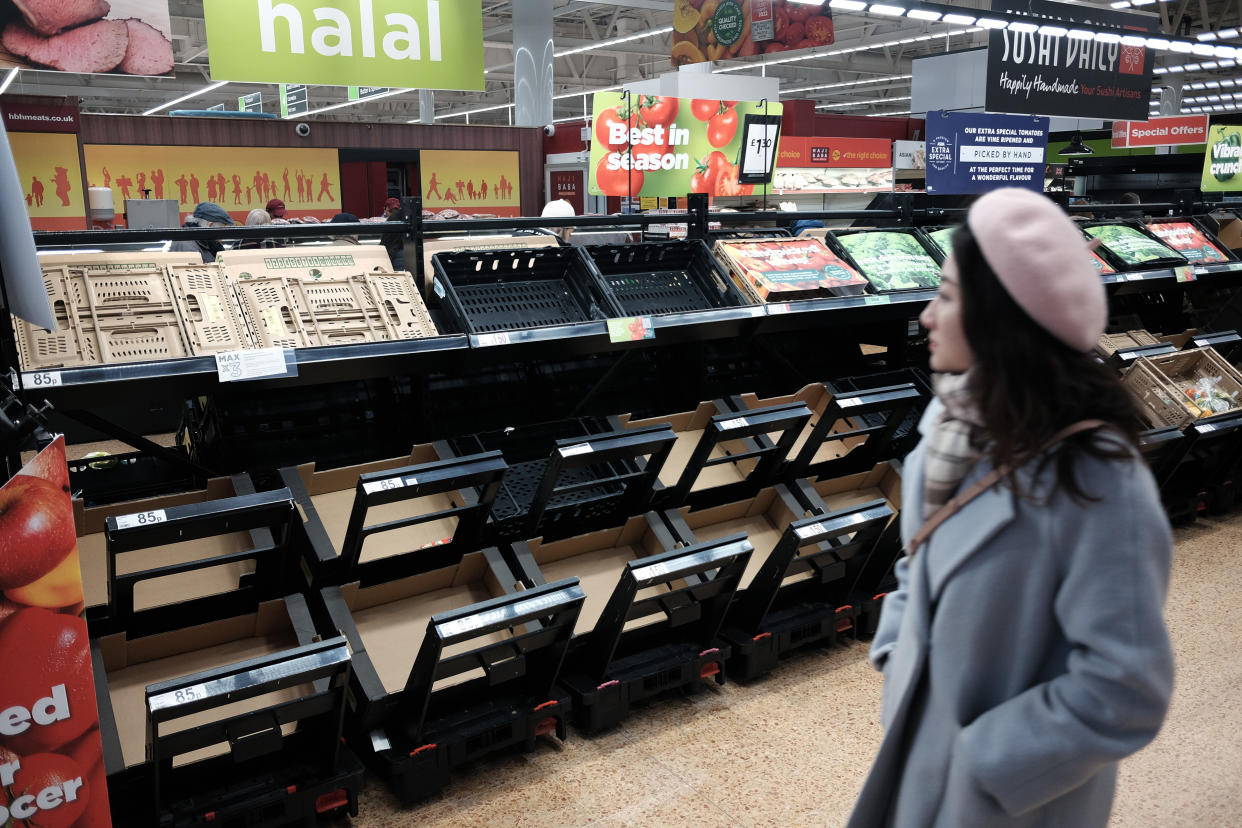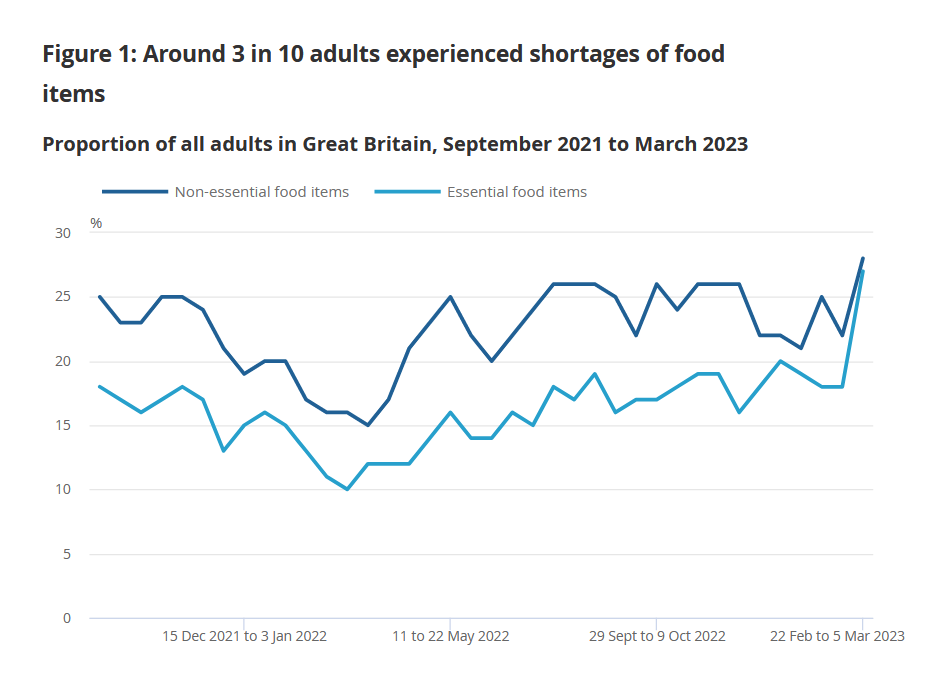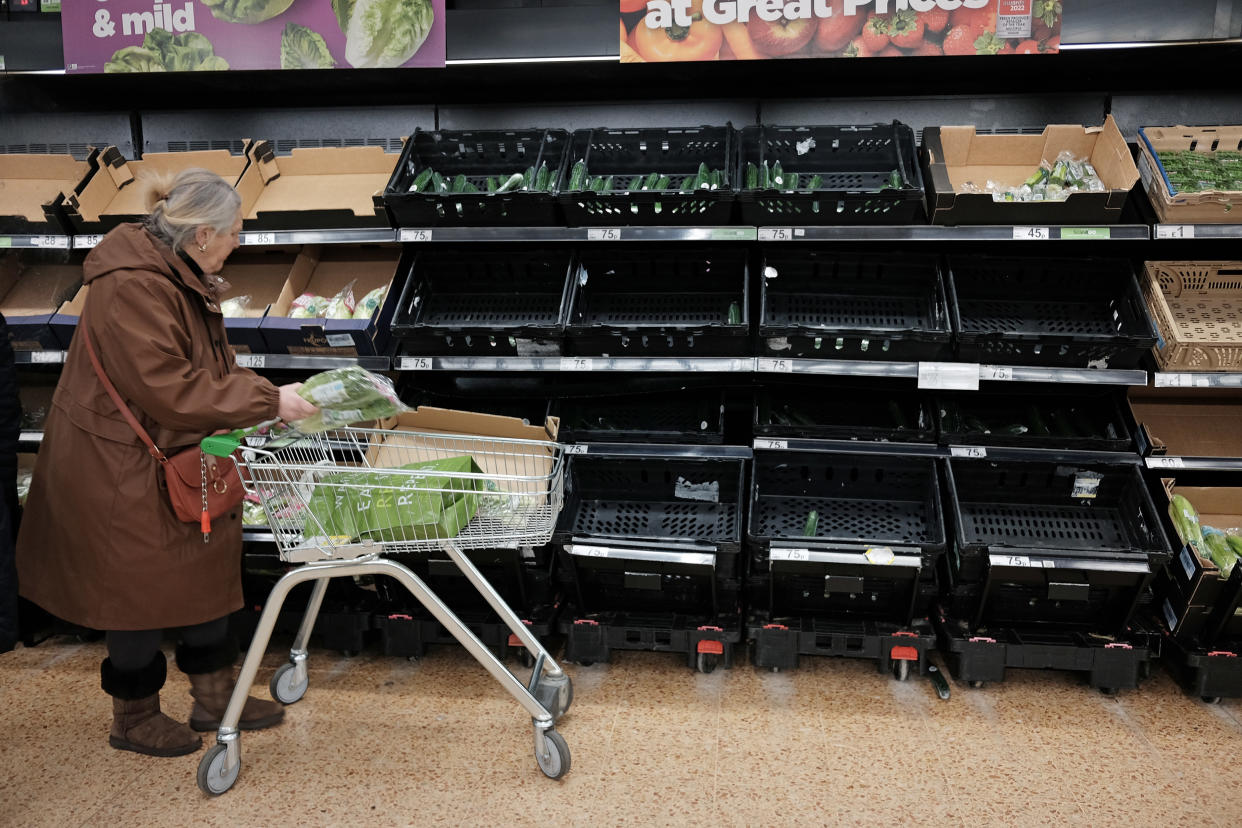Revealed: The food items least likely to be available in your supermarket

Eggs have been the food item least likely to be available in UK adults’ weekly shop, figures show.
Office for National Statistics (ONS) figures detailing food shortages show nearly three in 10 - 28% - adults in Great Britain were unable to buy eggs at some point in January.
This was followed by fresh vegetables (18%), fresh milk (17%), frozen foods (16%) and bread (16%).
It follows weeks and months in which consumers have faced, at best, buying restrictions on certain fresh produce, and at worst bare shelves as retailers grapple with supply problems.
Fresh food shortages continued through February into March, with the ONS reporting 27% of adults were unable to buy essential items - that they would usually buy on a regular basis - between 22 February and 5 March.
This was up from 11% reporting unavailable essential items a year ago, the ONS said.

Empty egg shelves have been a feature in supermarkets since November amid supply disruption caused by spiralling costs, as well as bird flu.
The British Free Range Egg Producers Association said at the time that the cost of feeding hens has jumped 50%, while energy prices have increased by 40%.
Meanwhile, the UK was facing its largest ever bout of bird flu, with a highly pathogenic variant circulating.
In recent weeks, many fresh vegetable shelves have also been bare in supermarkets across the country.
Shoppers started seeing shortages of tomatoes around 20 February, with retailers saying a combination of bad weather and subsequent transport problems in north Africa and Europe were causing significant supply problems.

The shortages spread to other products, leaving shelves bare of fresh produce items including cucumbers, peppers and lettuce.
In the winter months, the UK imports about 95% of its tomatoes and 90% of its lettuces - most of it from Spain and north Africa.
On Monday last week, the situation even led to food minister Mark Spencer summoning supermarket chiefs to explain “what they are doing to get shelves stocked again” and "outline how we can avoid a repeat of this".
Even MasterChef presenter Gregg Wallace waded into the debate, reminding the public of the benefits of tinned or frozen vegetables. "They are not an inferior item," he said after collecting an MBE last week.
Watch: Use preserved vegetables to combat shortages, says MasterChef host Gregg Wallace
However, on Friday, supermarkets had started to drop customer limits on buying certain fresh fruit and vegetables as the supply issues that led to the widespread shortages began to ease.
Discounted grocer Lidl was the latest to confirm it is lifting all restrictions on fruit and veg by Monday.
Asda also confirmed it had removed limits of three on cucumbers, lettuce, salad bags, broccoli, cauliflower and raspberries - leaving restrictions of three on just tomatoes and peppers.
However, the National Farmers’ Union (NFU) has previously warned the recent shortages could be “the tip of the iceberg”.
Read more: When will the cost of living crisis end?
NFU deputy president Tom Bradshaw said a reliance on imports has left the UK vulnerable to “shock weather events”.
Soaring energy bills exacerbated by the war in Ukraine have also put off some UK vegetable growers, he added.
“It’s really interesting that before Brexit we didn’t used to source anything, or very little, from Morocco but we’ve been forced to go further afield and now these climatic shocks becoming more prevalent have had a real impact on the food available on our shelves today.”
Selaine Saxby, Conservative MP for North Devon, even suggested seasonal eating last month, telling the House of Commons: “The supermarkets are still importing far too many products for us and… actually we should be eating more seasonally and supporting our own British farmers."


